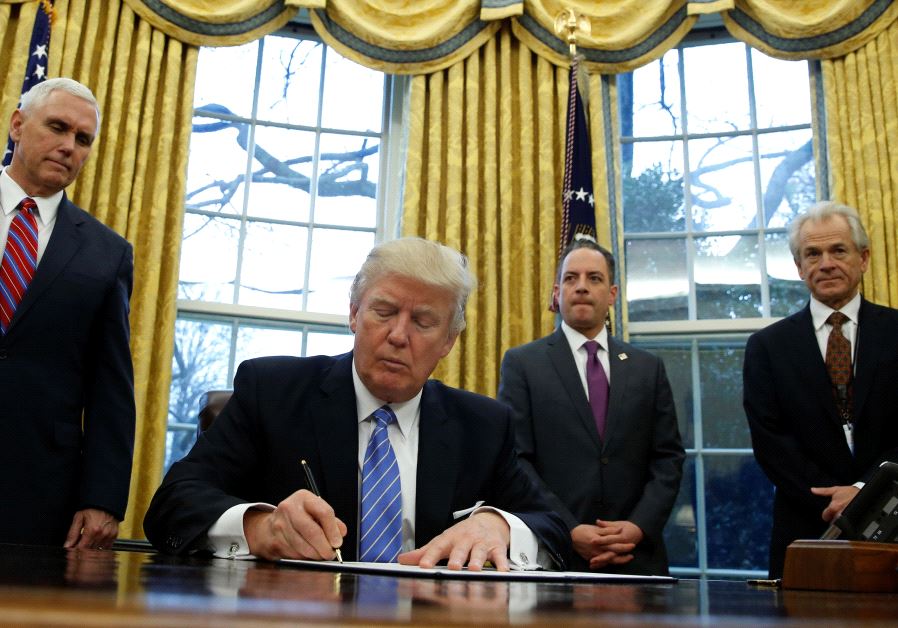Trump signs new revised travel ban order, Iraq left off
Refugees who are "in transit" and already have been approved would be able to travel to the United States.
 US President Donald Trump signs an executive order in the Oval Office of the White HouseUpdated:
US President Donald Trump signs an executive order in the Oval Office of the White HouseUpdated: